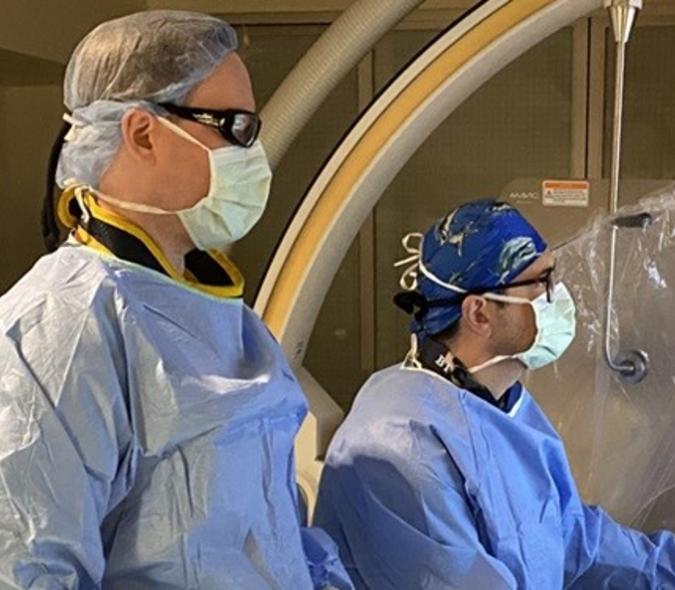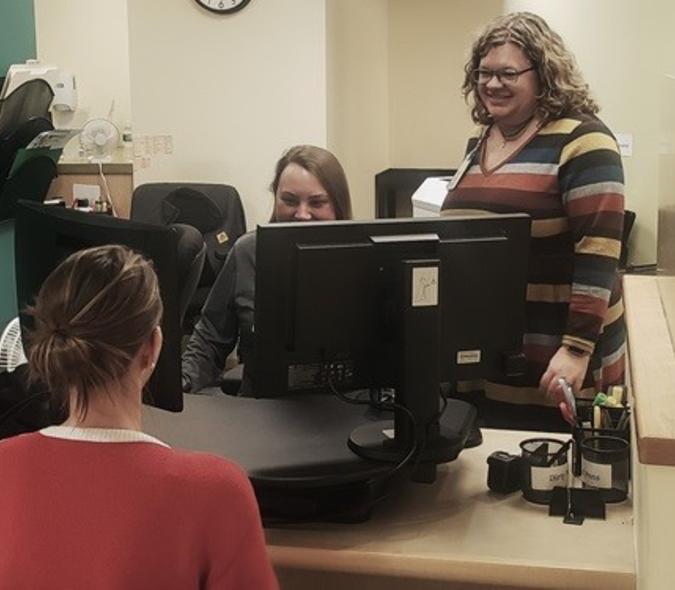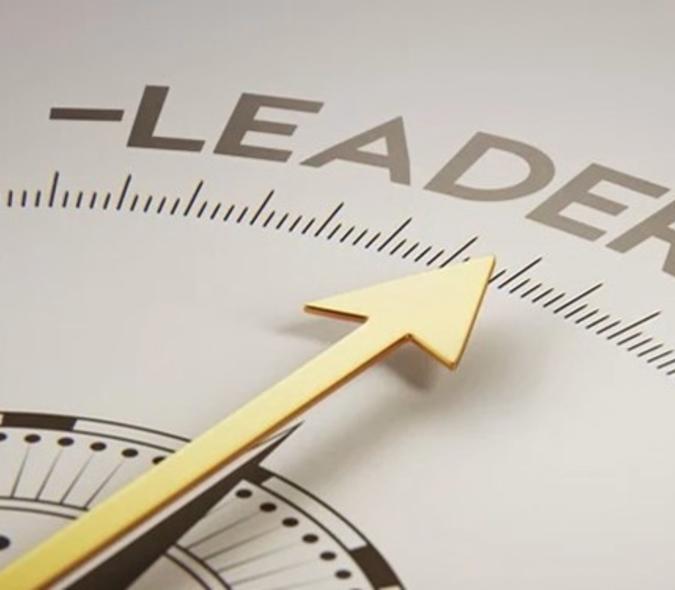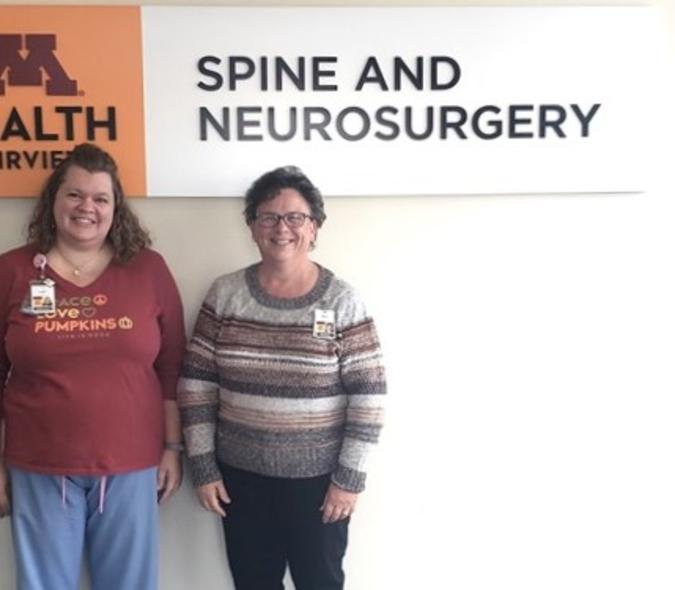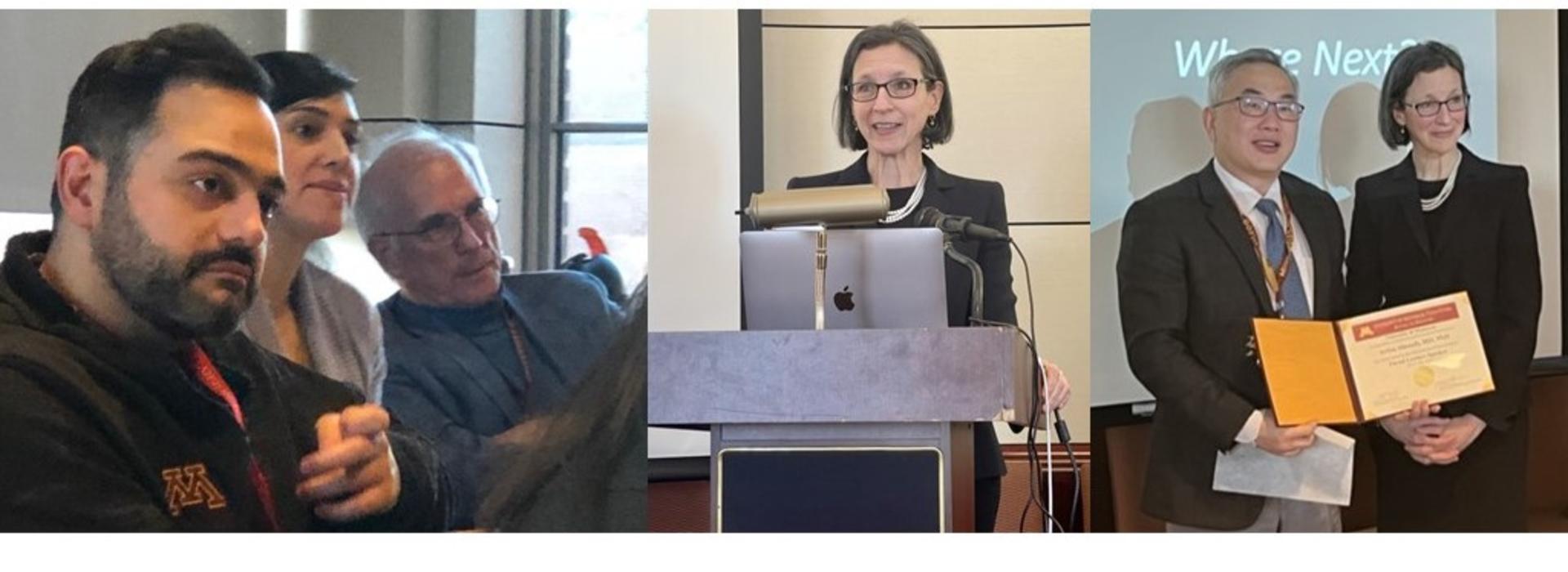
Titrud Lectureship: “A Career in Neurosurgery”
On Friday, March 24, 2023, Aviva Abosch, MD, PhD, from the University of Nebraska Medical Center in Omaha where she holds the Nancy A. Keegan and Donald R. Voelte, Jr. Chair in Neurosurgery, delivered the Titrud Lecture at the University of Minnesota Campus Club.
During the lecture, Abosch described the career trajectory that resulted in her becoming a neurosurgery department chair. “I wanted to outline the unique factors in my background and upbringing – where my family came from, what my parents valued, what I strived for in my career, what I think academic neurosurgery is all about — that led to me standing in front of that roomful of people,” she said. “And to point out that if I can realize my professional aspirations, there is no reason why anyone else in that room couldn’t achieve the same.”
One of two
Abosch is one of two women in the United States who currently serve as chairs of academic neurosurgery departments. As she went through her medical training, there weren’t any female neurosurgeons on faculty for her to emulate at the University of Pittsburgh, where she completed her MD and PhD, or at the University of California, San Francisco, where she completed neurosurgery residency.
It wasn’t until 2002, when she joined the neurosurgery faculty at Emory University in Atlanta, GA, that Abosch was able to work with another female neurosurgeon. “I have certainly worked with some extraordinary career mentors who were/are male; however, it’s really powerful to work with someone, ‘cast in your own image,’ who has successfully negotiated obstacles and climbed up through the ranks ahead of you,” she said.
Much better place
The field is in a much better place today in terms of trainees being able to look up and see people who look like themselves, according to Abosch. “This growing diversity is good because you don’t know if you’re going to be successful when you can’t see someone who looks like you and has done it before you,” she said.
Her own experience helped shape her perception of mentoring. “When people ask me for help, there is no possible way I can say no in good conscience,” said Abosch. “Mentoring is a huge portion of what I do now as a Chair, whether it is for high school students, undergraduates, residents, medical students, my own junior faculty, other departments’ or institutions’ faculty, or people who want to become chairs around North America. It is my job to say, ‘Yes, how can I help?’”
Proudest career moments
Mentoring experiences have led to some of Abosch’s proudest career moments. “Seeing people who I’ve helped train or advise realize their own career aspirations is fantastic,” she said. “I recently had a call from someone who threw her hat in the ring for a chairmanship at another institution and was calling to let me know that her bid had been successful. I have advised and pulled for her over her career. Her success and the success of others like her is a source both of pride and optimism about the future of the profession.”
While Abosch is optimistic about the neurosurgical profession, it doesn’t mean there aren’t challenges that need to be faced. “Coming out of the pandemic, we’re struggling with an unprecedented lack of resources that doesn’t just affect neurosurgery,” she said. “Workforce issues impact our ability to get patients into the hospital, through the operating room, and out of the hospital to their next phase of care. There are issues with every aspect of the healthcare workforce, from nurses to technicians who do radiology scans, to staffing in places where we send our patients to recover. And when we can’t take care of patients, the business of healthcare fails and we end up having to close hospital programs and shutter critical-access hospitals around the country.”
Ensuring fairness
One of the challenges facing neurosurgery is working to make it fair, ensuring that more people have access to the profession. “Similar efforts are also underway in society at large, with the social justice movement currently underway,” said Abosch. “I’m involved in this work nationally and locally, as are many other people in various national neurosurgery organizations. We’re hopeful about the progress we’re making in our profession.”
Underlying all her work is Abosch’s abiding commitment to good patient care. “I love providing the best possible care of my patients based on my expertise,” she said. “I consider it a calling, not a profession. When my phone rings in the middle of the night about an urgent issue, there is never a question about going into the hospital. I know what I’m doing and why I’m doing it, and the value to society of what I do. I enjoy making people better and giving them back their lives.”
Fond memories
Abosch was a member of the U of M Neurosurgery Department faculty from 2005 to 2013. Her fondest memories from that time are about the people. “I love the people…the faculty I worked with, the residents I helped train, the medical students who came through and worked on projects, the nurses and APPs, the schedulers, the administrative staff…everyone in the department,” she said. “I have very fond memories of all of them.”
